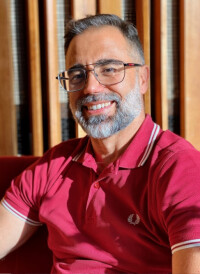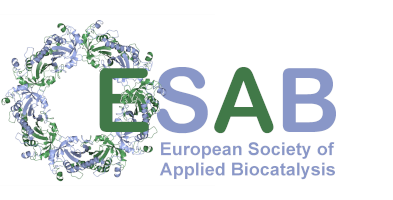To boldly go: discovering novel biocatalysts in uncharted sequence space using in vivo and in vitro expression
Abstract
The microbial diversity represents an unfathomable source of enzymes for the bioeconomy, but only a small fraction of it can be cultivated. For this reason, it is an underexplored source of bioactive compounds, carbohydrate polymers and enzymes, among others. Sampling the natural microbial diversity, screening, identifying and isolating the relevant genes is cumbersome, expensive and results in a heavy environmental burden, low yields, high costs and long times to market, in particular if we opt for function-based, information-agnostic methods as a gateway to new diversity that could not be found otherwise.
Throughout the course of EU-funded proyects CarbaZymes, MetaFluidics, RadicalZ and BlueTools, we have been developing (and will develop) technology to overcome the limitations both for the study of microbial communities and their “econological use” and to tailor the discovered enzymes towards industrial applications. Our methods for enzyme discovery in the natural and artificial diversity make use of whole cells (in vivo) or cell-like compartments (in vitro) for recombinant expression, reducing the average time for enzyme discovery and evolution while increasing the amount of sampled sequence space, sometimes finding ourselves in uncharted territory.
About the Speaker(s)
 Aurelio Hidalgo is Associate Professor (Profesor Titular) at the Universidad Autónoma de Madrid (UAM) and works in the field of protein discovery and engineering for biocatalysis. He leads the High-throughput Discovery Lab at the Center of Molecular Biology “Severo Ochoa” (CBMSO, a joint research institute of UAM and CSIC).
Aurelio Hidalgo is Associate Professor (Profesor Titular) at the Universidad Autónoma de Madrid (UAM) and works in the field of protein discovery and engineering for biocatalysis. He leads the High-throughput Discovery Lab at the Center of Molecular Biology “Severo Ochoa” (CBMSO, a joint research institute of UAM and CSIC).
Aurelio Hidalgo did his thesis at the Department of Biochemistry and Molecular Biology of the University of the Basque Country (UPV-EHU) on waste-water bioremediation and obtained the Extraordinary PhD Award. Subsequently, he worked as a postdoc at the Instituto de Catálisis y Petroleoquimica (CSIC, Madrid) on cloning, expression and purification of thermozymes and their immobilization as part of multienzymatic systems. In a second postdoctoral stage he worked at the University of Greifswald developing methodologies and tools for targeted random mutagenesis, as well as high-throughput screening and immobilization methods.
After obtaining a tenure track contract, he joined the Department of Molecular Biology of the Universidad Autónoma de Madrid and the Center of Molecular Biology "Severo Ochoa". Doing research on thermostabilization of proteins by protein engineering. At the end of 2011 he became permanent staff at UAM. From then to the present he has obtained several projects as PI, both National (4) and European (6), of which he has coordinated 3. During this period, his research has focused on the development of methods, both in vivo and in vitro, to discover new enzymes for biocatalysis. After a 12-month stay at the University of Cambridge, he has recently incorporated microfluidics as a tool for ultrahigh-throughput screening in his laboratory.
In addition, Prof. Hidalgo has a proven track record in teaching for higher education, having a degree in teaching and learning higher education and being ranked in the top 3% of instructors at UAM. Furthermore, Prof. Hidalgo is also active in outreach activities, having participated in ESOF2018 and the European Researchers' Night 2018, 2019 and 2022.
